Too much wood heating P.E.I. government buildings is from unsustainable sources: documents
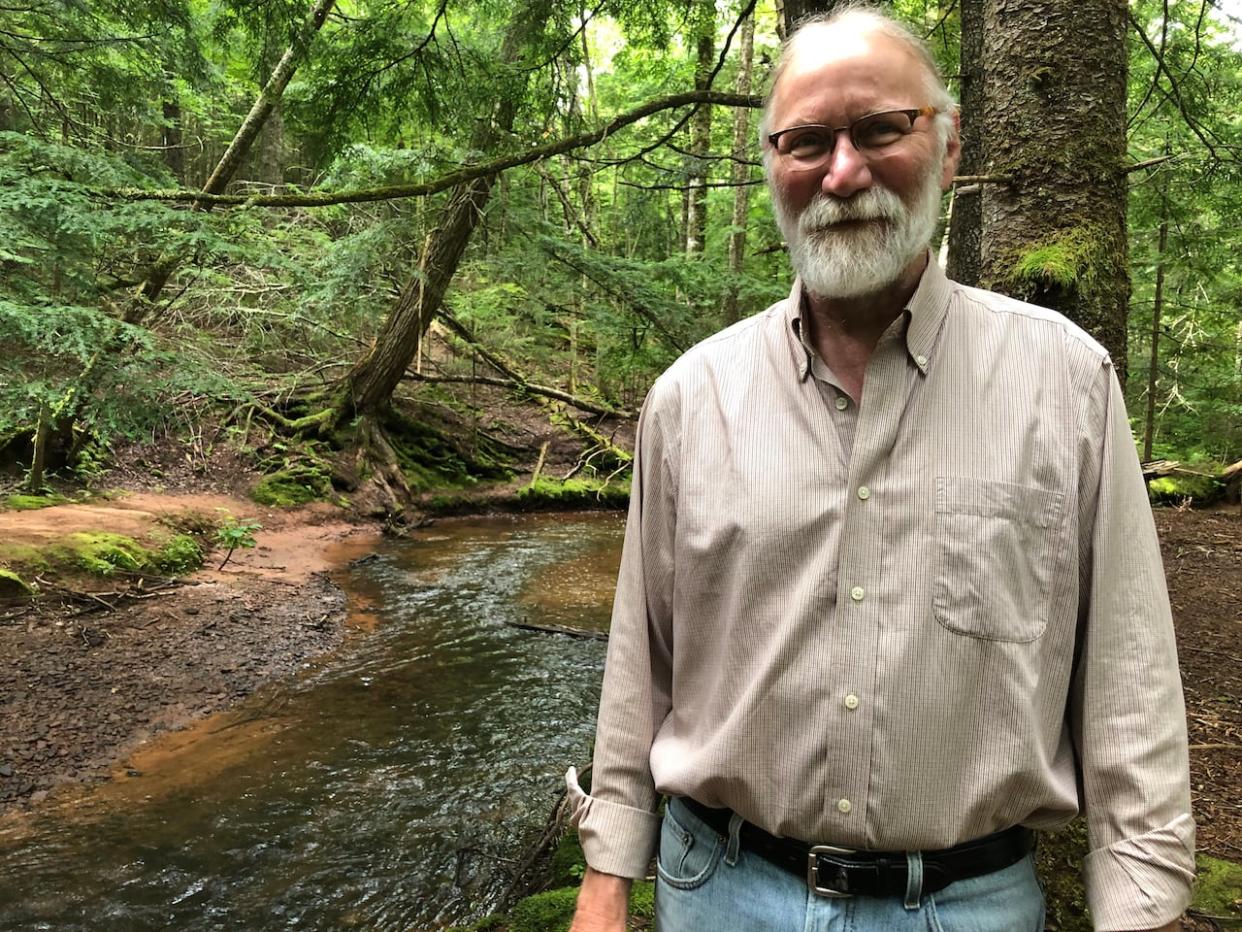
Documents that CBC News P.E.I. received through Freedom of Information show a large amount of the wood being used to heat more than 40 provincial buildings has come from forests that were cleared to become housing or farmland.
The Department of Environment, Energy and Climate Change provided more than 400 pages of emails, data and reports dated from May 2019 to January 2023. They cover a period when the Dennis King government was choosing to expand the number of buildings being heated with biomass, or organic matter from plants that's used as fuel.
One report in the documents revealed that 86 per cent of the wood one contractor used between 2015 and 2018 came from land conversion — forests cleared for farmland or for housing.
That concerns Gary Schneider, manager of the MacPhail Woods Ecological Project and a member of the province's Forestry Commission.
"It can't be sustainable, because we can't continuously clear land," he said. "After a while, you're going to run out of forest."
During tours he took with the commission last summer, Schneider learned that some watersheds already have very little woodland around them. For example, he said, only about 17 per cent of the land in the Kensington area is still forested.
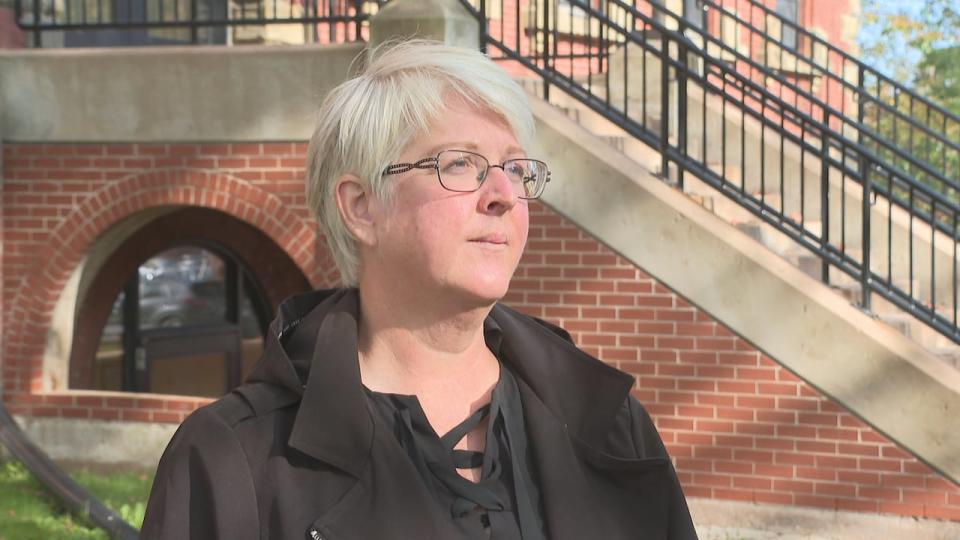
'The province's biomass initiative is making conversion of forested land to agriculture more economically viable for the landowner,' Kate MacQuarrie, the province's director of Forests, Fish and Wildlife, wrote in a January 2021 email. (Tony Davis/CBC)
A January 2021 email from Kate MacQuarrie, the director of Forests, Fish and Wildlife, echoes Schneider's concerns.
"In essence, the province's biomass initiative is making conversion of forested land to agriculture more economically viable for the landowner," she wrote.
MacQuarrie predicted that the 2020 State of the Forest inventory would show a decrease in total forest area on P.E.I., and critics would point to the conversion of wood to biomass for heating as a contributing factor.
That report, released in late December, did reveal a 1.7 per cent decline in P.E.I.'s forested area from 2010 to 2020, and said cutting down forests to create farmland and land for housing was a contributing factor.
During that time period, 45 per cent of deforestation has been from land clearing. The report recommends limiting land conversion in future to protect P.E.I. forests.
Sustainable harvest for biomass crucial
When the Liberal government of Robert Ghiz started using wood to heat provincial buildings in 2008, the aim was to reduce reliance on furnace oil. A promise was made that only wood that had been harvested sustainably would be used in the low-emission wood-burning boilers.
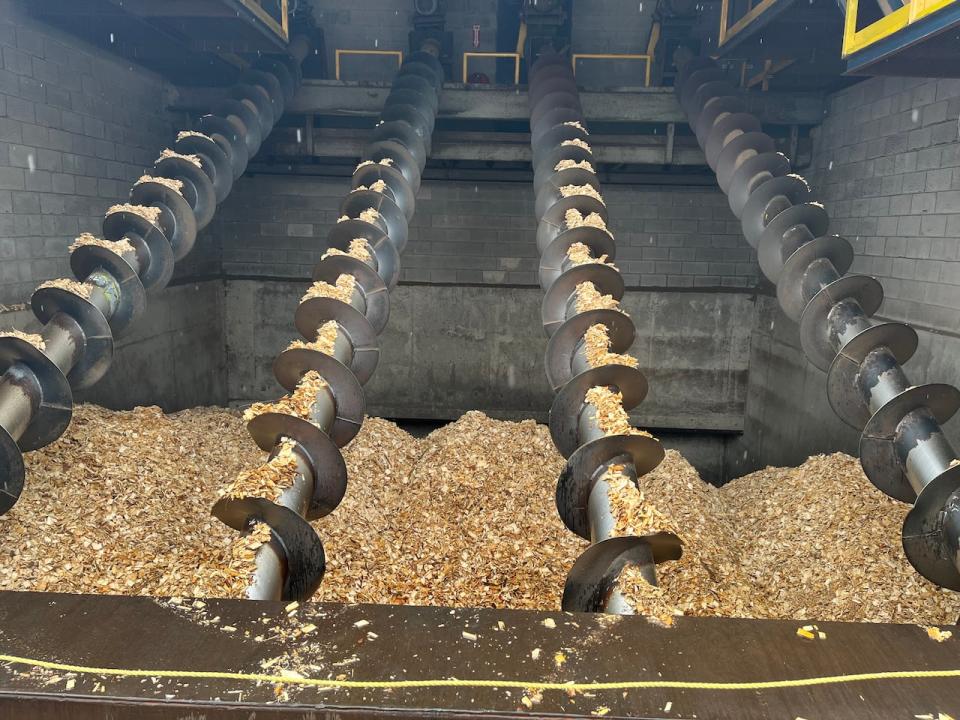
Low-emissions boilers use wood chips and other forms of biomass to generate heat. (Wayne Thibodeau/CBC)
When Dennis King's Progressive Conservative government announced in 2019 that it was expanding the program, a contractor said all the wood was being sourced sustainably. Schneider took exception to that, and asked officials to prove it was true.
The documents obtained by CBC News show it wasn't.
"At the moment, we have no information on the feedstock for biomass," MacQuarrie wrote in an October 2019 email.
A short time later, officials told government and industry people involved in biomass to stop saying the wood was from sustainable sources.
A Forestry Commission report highlighted recently that the province doesn't even have a clear definition of what it means when it says wood is harvested sustainably, and called for that to change.
Only using waste wood, 1 contractor says
Wood4Heating is one of four contractors helping heat provincial buildings using biomass, according to the documents — and it's the only contractor that responded when CBC News asked for an interview.
The Charlottetown company supplies biomass to heat 20 provincial buildings, including the Community Hospital in O'Leary, the P.E.I. Correctional Facility and a number of schools.
President Detlev Elsner told CBC News they use only waste wood that can't be turned into anything else.
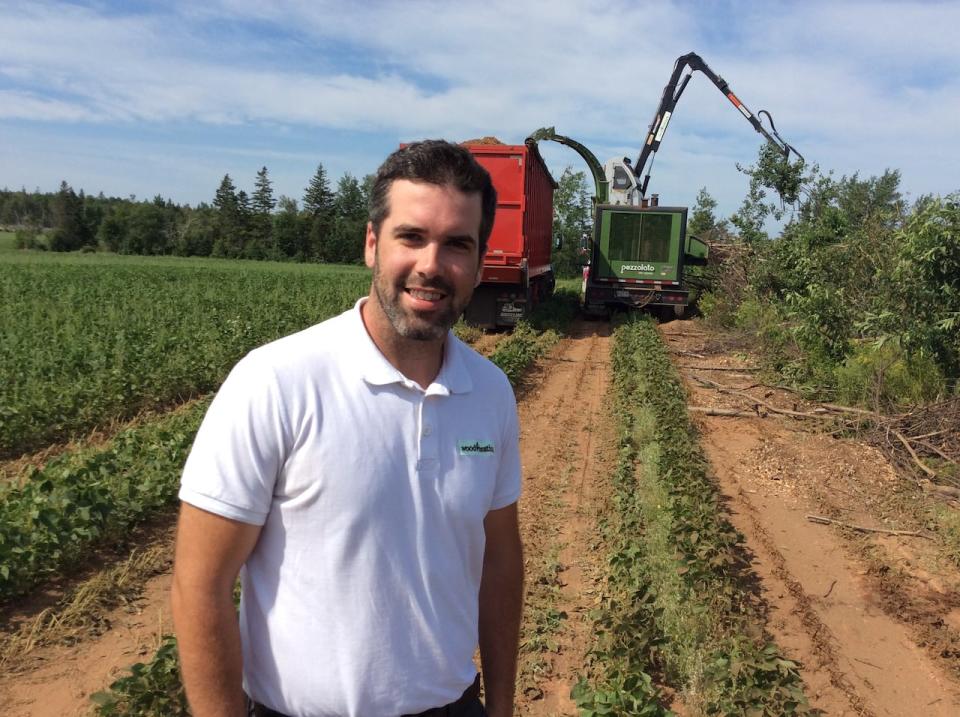
A 2018 file photo shows Alex Pratt of contractor Wood4Heating at a location where it was harvesting Island wood chips. (Nancy Russell/CBC)
Elsner hasn't seen the documents, but he did say it is possible Wood4Heating was the contractor that got 86 per cent of its wood from land clearing from 2015 to 2018. He doesn't see that as a problem.
"The people clear the land already. We don't pay a farmer for that wood," he said.
Elsner said if companies like his don't use that wood, the landowner will get a fire permit and burn it on site, creating more greenhouse gas emissions than would be emitted by the wood-burning boilers in the provincial buildings.
"We use that to heat a school, or a manor or whatever building it is."
Since 2019, provincial biomass contracts have included a 20 per cent limit on wood coming from land cleared for agriculture. Elsner doesn't agree with that limit, saying the wood should be used to provide energy if it's available.
Improvements over time
The documents show there have been some improvements. In a January 2023 email, P.E.I.'s new Forest Auditor estimated that about half of the wood used in 2021 had come from sustainable sources, although at least a third of the wood was still coming from forest cleared to provide land for agriculture or housing.
Elsner questions that figure, and would like to know how that estimate was reached. In a statement sent for this story, the province said the Forest Auditor is preparing a report on his findings.
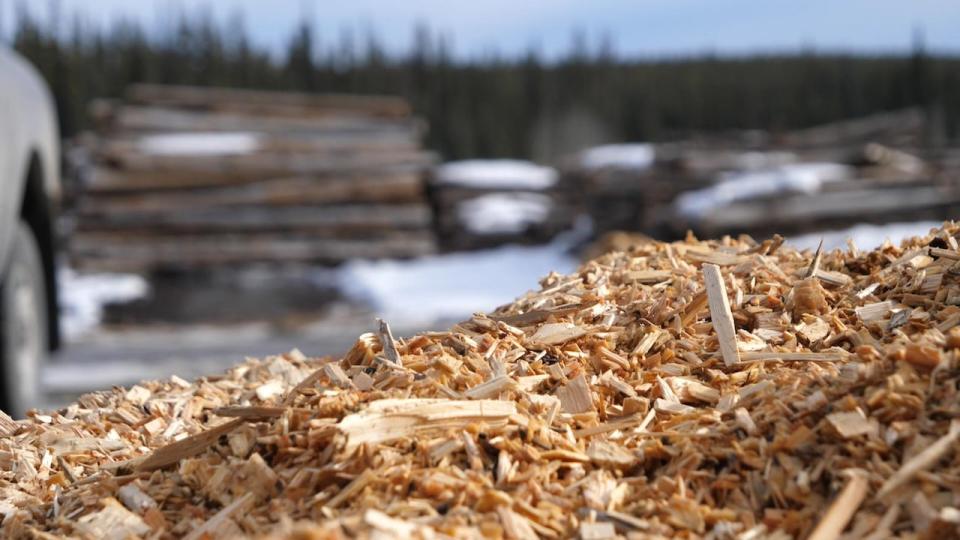
Biomass fuel can come from ground-up branches, treetops or non-commercial trees, but sawmill leftovers like these, shown in a file photo from Teslin, Yukon, can also become wood-energy chips. (Nelly Albérola/Radio-Canada)
Elsner said it would be helpful for the province to outline which forestry methods are acceptable and then do spot audits to make sure contractors are in compliance, similar to spot checks done on health and safety practices at restaurants.
"You have to have certain forest practices, you have to out-front declare which one you use, and then afterwards just verify it in whatever way the province deems suitable," he said.
Biomass good for Net Zero goals, says province
A month ago, CBC News asked the Department of Environment, Energy and Climate Change for an interview on issues related to the documents released — either a department official or the minister. That request was declined.
In a statement sent to CBC News in lieu of an interview, department officials said 47 buildings are now heated with biomass, and there has been a freeze on adding more until the traceability and sustainability questions are worked out.
"All new builds and new retrofit projects in buildings like schools will have net zero-ready heating sources, such as geothermal," the statement said.
As well, it said that officials are reviewing existing contracts to see if it's possible to standardize sustainability requirements.
Despite the challenges, provincial officials said there are positives. The statement said heating with wood can displace 5.6 million litres of fuel oil annually, which translates to a 15,300-tonne reduction in greenhouse gas emissions — something that is a positive contribution to P.E.I.'s goal of being net zero for such emissions by 2040.


